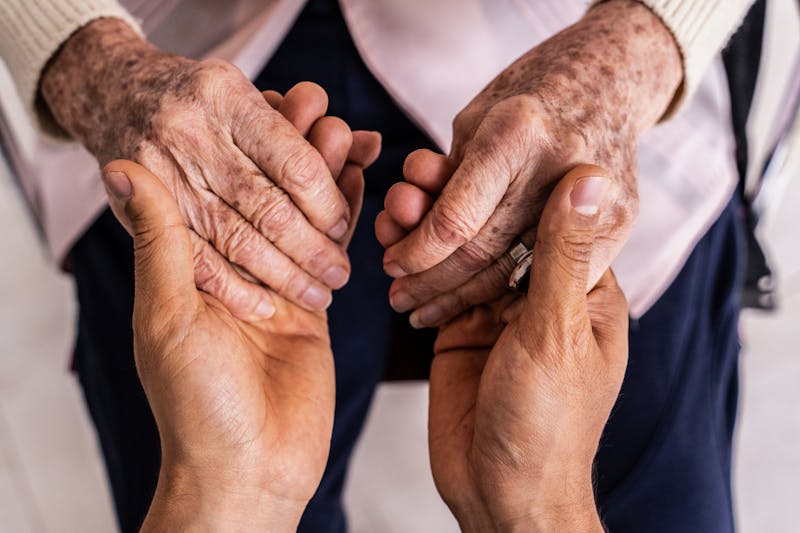
When we place a loved one in a nursing home, we trust facilities to provide compassionate care. Yet nursing home abuse affects countless vulnerable residents. Why regular visits to nursing homes are key to spotting abuse becomes clear when you understand the isolation many residents face. Your presence alone can make a profound difference in their safety and well-being.
Elder Abuse Statistics in Nursing Homes
According to recent reports from the World Health Organization, two in three staff members report committing abuse in the past year. One in six people over the age of 60 experiences some form of abuse in nursing homes and long-term care facilities. These statistics only reflect reported cases; the true numbers are likely much higher.
Why Regular Visits to Nursing Homes Are Key to Spotting Abuse
Understanding why regular visits to nursing homes are key to spotting abuse helps families protect their vulnerable loved ones. Your consistent presence creates accountability and demonstrates that someone is watching closely. Staff members who know family members visit frequently and often provide better care. Regular visits establish patterns that help you notice changes more quickly.
Helps Families Identify Early Warning Signs of Abuse
Frequent visits enable you to detect subtle changes in your loved one's condition or behavior. You become acquainted with their normal baseline, making variations more obvious. Personnel may act differently when family members arrive unexpectedly compared to scheduled visits.
Developing relationships with other residents and families creates a network of observers who can share concerns and support one another in holding the facility accountable.
Deters Neglect and Abuse
Your regular presence sends a clear message to staff that someone closely monitors the quality of care. Abusive staff members often target isolated residents who lack family involvement or advocacy. Knowing that family members visit frequently and unpredictably creates hesitation among potential abusers. Building positive relationships with good staff members encourages them to report problems they witness.
Encourages Loved Ones to Report Issues
Many residents hesitate to report abuse or neglect due to fear of retaliation from facility staff. Your visits create safe opportunities for private conversations where they can share concerns about their care.
Regular family contact fosters trust, encouraging residents to share openly about their harrowing experiences. Family members who visit frequently can effectively advocate for residents when they are unable to speak for themselves.
Provides an Accurate Depiction of the Facility's State
Regular visits allow you to observe patterns in staffing, cleanliness, and daily operations. You can determine whether issues are resolved or persistently overlooked after being reported to management. Visiting at various times, including evenings and weekends, can expose differences in care between shifts.
Gaining a clear picture of the facility’s true conditions helps you make informed decisions for your loved one and provides essential information for holding negligent facilities accountable while protecting their rights.
Knowing the Signs Is Key to Spotting Abuse
Identifying abuse means paying attention to both explicit and subtle warning signs. Even if staff explanations appear reasonable, they should be carefully evaluated and considered. Trust your instincts; if something feels wrong, act on it. Early detection can safeguard your loved one and create vital evidence if legal action becomes necessary to hold the facility accountable.
Emotional and Psychological Signs
Emotional abuse damages residents' mental health and destroys their sense of dignity and self-worth. These signs often develop gradually, making regular visits imperative for noticing behavioral changes:
- Withdrawal from activities or social interaction: Previously engaged residents become isolated and refuse participation.
- Unusual fear around specific staff members: Residents may flinch, cry, or show anxiety when certain caregivers approach.
- Depression or emotional outbursts: Mood changes beyond normal aging or medical conditions warrant investigation.
- Changes in sleep patterns: Residents may experience insomnia, nightmares, or excessive sleeping.
Pay attention to how staff members speak to residents during your visits. Observe whether your loved one appears comfortable or anxious around specific caregivers. Ask open-ended questions about their daily experiences and relationships with staff members.
What Should I Do If I Suspect Nursing Home Abuse?
Taking immediate action protects your loved one and prevents further harm to other residents. Follow these steps systematically while maintaining detailed records throughout the process:
- Document Everything: Take photographs of injuries, keep detailed notes of conversations, and maintain a timeline of events.
- Report it to the Facility: File a formal written complaint with facility administrators and request immediate intervention.
- Contact Local Authorities: Report suspected abuse to Texas Health and Human Services, Adult Protective Services, and file a police report when appropriate.
- Consult an Experienced Attorney: Trust our skilled nursing home abuse lawyer at the Law Offices of Glenn W. Cunningham to protect your rights and guide you through legal options.
Texas law provides strong protections for nursing home residents through Chapter 242 of the Health and Safety Code. Additionally, Section 48.002 of the Texas Human Resources Code requires mandatory reporting of suspected abuse. These laws create accountability and enable families to seek justice for their loved ones.
Advocating for the Rights of Vulnerable Nursing Home Residents
The Law Offices of Glenn W. Cunningham is passionate about defending the rights of abuse victims. For over thirty years, Mr. Cunningham has lent an empathetic ear and provided compassionate legal support.
We understand the emotional toll nursing home abuse takes on entire families. Our firm handles every legal aspect of your case, allowing you to prioritize relocation and caring for your loved one.
Reach out online or call the Law Offices of Glenn W. Cunningham today to protect your loved one's rights, including the right to compensation.
